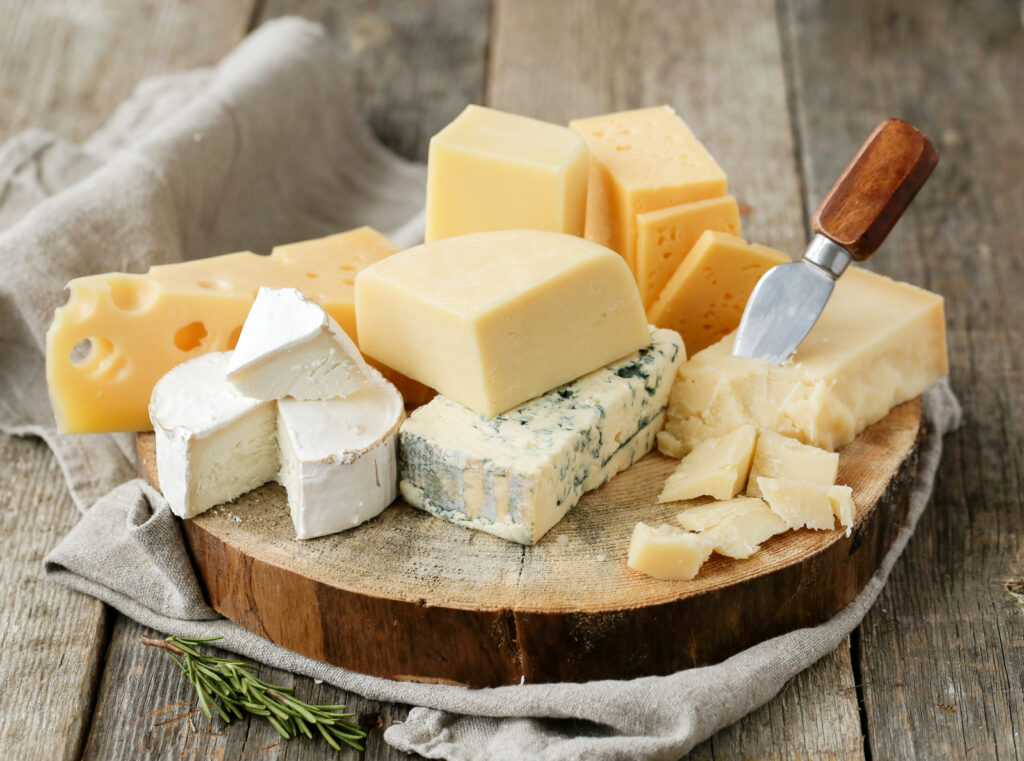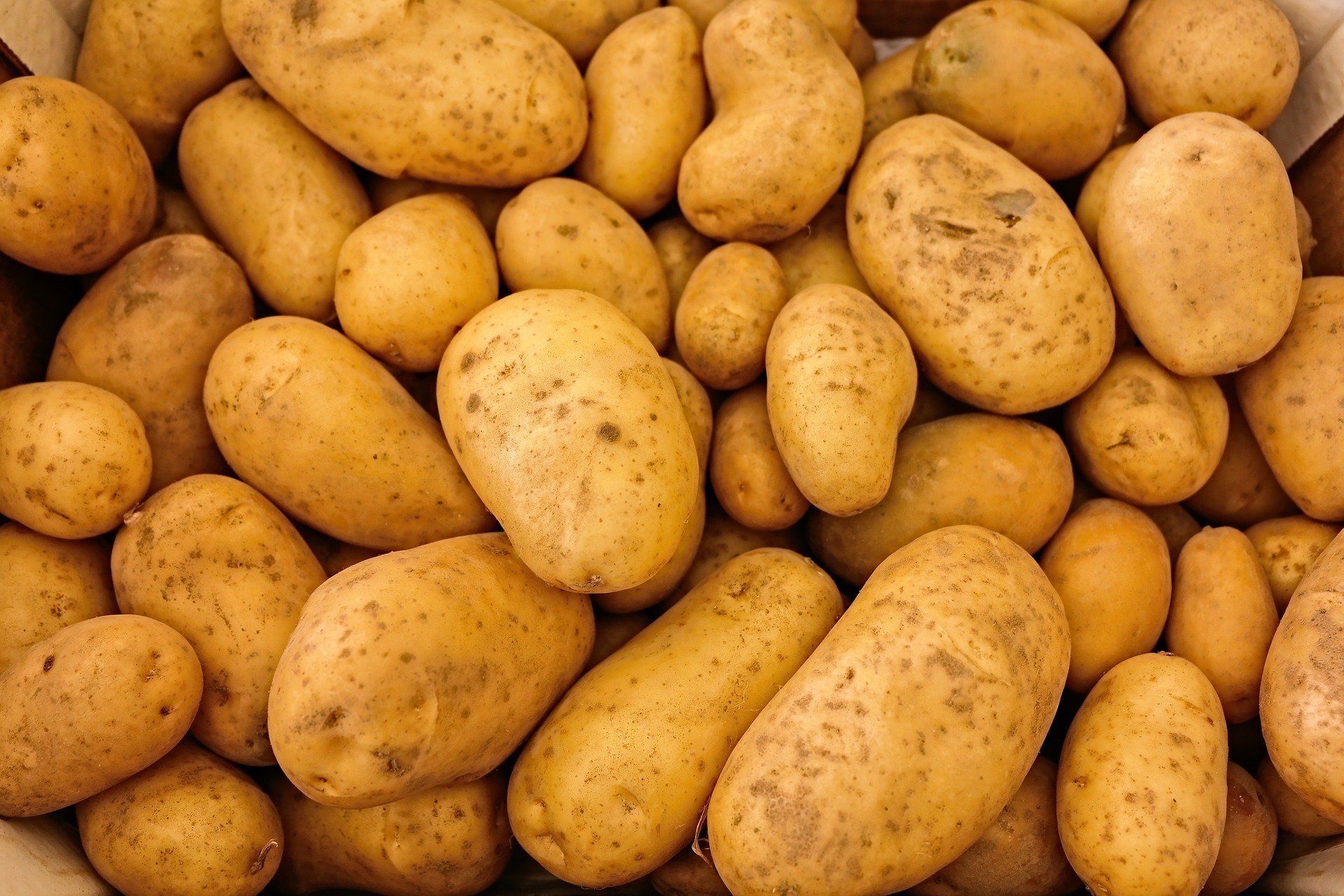Food & Climate
An emerging molecular farming company has unveiled an unexpected food innovation—genetically engineered potato protein or casein that produce real cow milk proteins.
This technology relies on AI-driven genetic engineering to scan genetic databases, identifying animal-derived DNA sequences that could be successfully integrated into plant cells, according to a report seen by “Food & Climate” platform.
The announce came from Israel’s Finally Foods that said it would start its first field trial for potatoes containing casein next week.
Casein is the most common protein found in cow’s milk, making up 80% of its protein content; it’s a key emulsifier that prevents water and fat from separating and that gives cheese its melty and stretchy attributes. There are 4 kinds of casein proteins found in milk, according to “green queen”.
Potato protein and greenhouse gases
Humans have been eating cheese for over 7,000 years and it’s not hard to understand why. Cheese is nutrient and calorie-dense, and it can stay edible for long periods of time. But the dairy industry has become an important driver of greenhouse gases, producing close to 4% of our global emissions (as much as the aviation and shipping industries combined).
Instead of relying on cows to produce casein, the essential protein responsible for milk’s structure and cheese-making properties, the company has genetically engineered potatoes to grow this protein naturally. By acting as “bio-reactors,” these potatoes can produce casein at a lower environmental cost than traditional dairy farming.
These casein-growing potatoes are cultivated just like regular potatoes, and once harvested, the casein protein is extracted to be used in dairy production.
A number of different plants could have been used, but potatoes are an ideal candidate as they grow efficiently in diverse climates, have high yields, and are globally available. The protein extraction process is also simpler than in crops like soybeans.
The company reported another important breakthrough. Traditional dairy has four key casein proteins—alpha 1, alpha 2, beta, and kappa—all of which contribute to milk’s ability to curdle, melt, and stretch in cheese. Most microbial fermentation methods struggle to produce all four caseins together, requiring different microbial strains to make each protein separately. In potatoes, researchers were reportedly able to grow all four at the same time, essentially creating the cheese protein completely.
If successful, this would mean potato-grown casein could lead to a cheese that is identical to traditional dairy cheese.

But there will be big hurdles along the way. Governments often impose strict rules on genetically modified crops and in general, tend to be stricter on crops than artificial fermentation products. Microbes also grow in days, plants take weeks or months.
Perhaps the biggest hurdle, however, will be convincing people to embrace genetically engineered crops for dairy production, according to “msn”
Global market expectations
The global potato protein market is poised for significant growth in the coming years, fueled by a surge in plant-based product innovation and rising consumer demand for alternative protein sources.
According to a newly released report from Transparency Market Research (TMR), industry stakeholders are moving swiftly to enhance product offerings, improve cost efficiencies, and address sustainability concerns—all key factors expected to bolster the market’s long-term outlook.
Valued at USD 209.6 million in 2022, the market is expected to grow at an impressive CAGR of 6.9% from 2023 to 2031, reaching a projected value of USD 381.5 million by 2031.
In its comprehensive analysis, TMR highlights that the potato protein market is benefiting from a remarkable shift in global dietary preferences. Increasing numbers of consumers are incorporating more plant-based foods into their meals, driven both by health-conscious choices and a desire to reduce environmental impact. This shift has placed potato protein—once a niche ingredient—at center stage, as manufacturers seek functional, high-quality protein alternatives to meet evolving culinary and nutritional demands.
A notable trend identified in the report is the intense focus on research and development within the potato protein sector. Leading companies are pouring resources into cutting-edge extraction techniques and refining production processes to boost protein purity, enhance flavor profiles, and ensure product consistency. Concurrently, investments in proprietary technologies are helping to streamline the value chain, ultimately driving down prices and making potato protein more accessible to food and beverage innovators worldwide.
As potato protein gains traction, product developers are leveraging its versatility across multiple segments, including bakery products, meat analogues, plant-based dairy, and sports nutrition supplements.

The report forecasts that Europe, with its established plant-based traditions and strong regulatory frameworks, will remain a leading hub for potato protein innovation. North America and parts of the Asia Pacific region, buoyed by a growing appetite for sustainable proteins, will also see heightened interest and investment as international players expand their footprints and diversify product portfolios, according to “Potato News Today”.

